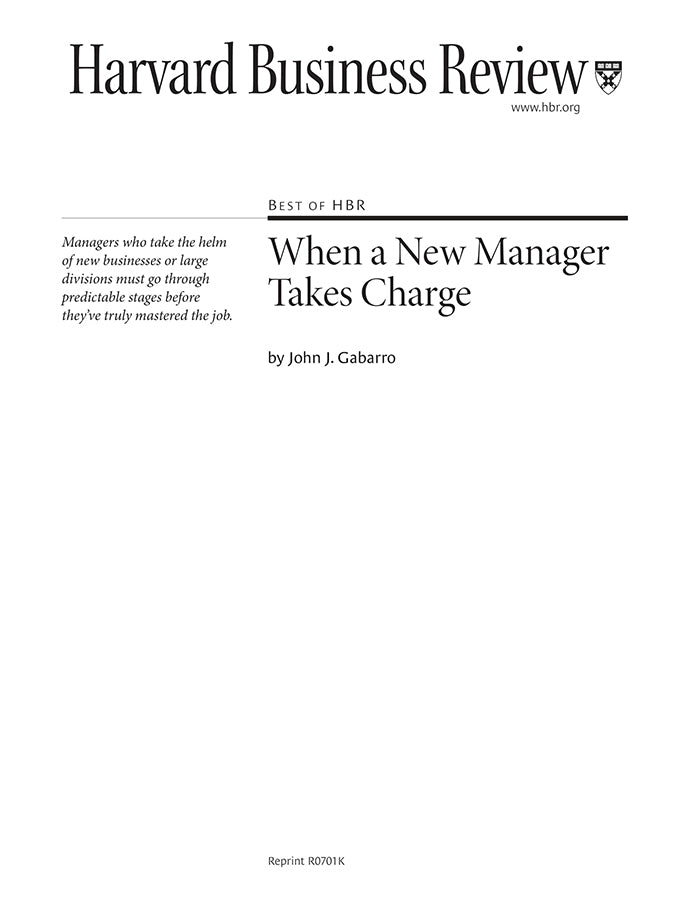When a New Manager Takes Charge (HBR Classic)
受取状況を読み込めませんでした
This article was originally published in May-June 1985 and was republished in January 2007 as an HBR Classic. When some managers take over a new job, they hit the ground running. They learn the ropes, get along with their bosses and subordinates, gain credibility, and ultimately master the situation. Others, however, don't do so well. What accounts for the difference? In this article, first published in 1985, Harvard Business School professor John J. Gabarro relates the findings of two sets of field studies he conducted, covering 14 management successions. The first set was a three-year study of four newly assigned division presidents; the second consisted of 10 historical case studies. The project comprised American and European organizations with sales varying from $1.2 million to $3 billion. It included turnarounds, normal situations, failures, and triumphs. According to the author, the taking-charge process follows five predictable stages: taking hold, immersion, reshaping, consolidation, and refinement. These phases are characterized by a series of alternating periods of intense learning (immersion and refinement) and action (taking hold, reshaping, and consolidation). The study's results put to rest the myth of the all-purpose general manager who can be dropped into any situation and emerge triumphant. Understanding a situation and effecting change do not occur overnight, says Gabarro, and human variables such as managerial styles and effective working relationships make a difference.
【書誌情報】
ページ数:20ページ
サイズ:A4
商品番号:HBSP-R0701K
発行日:2007/1/1
登録日:2012/3/28


